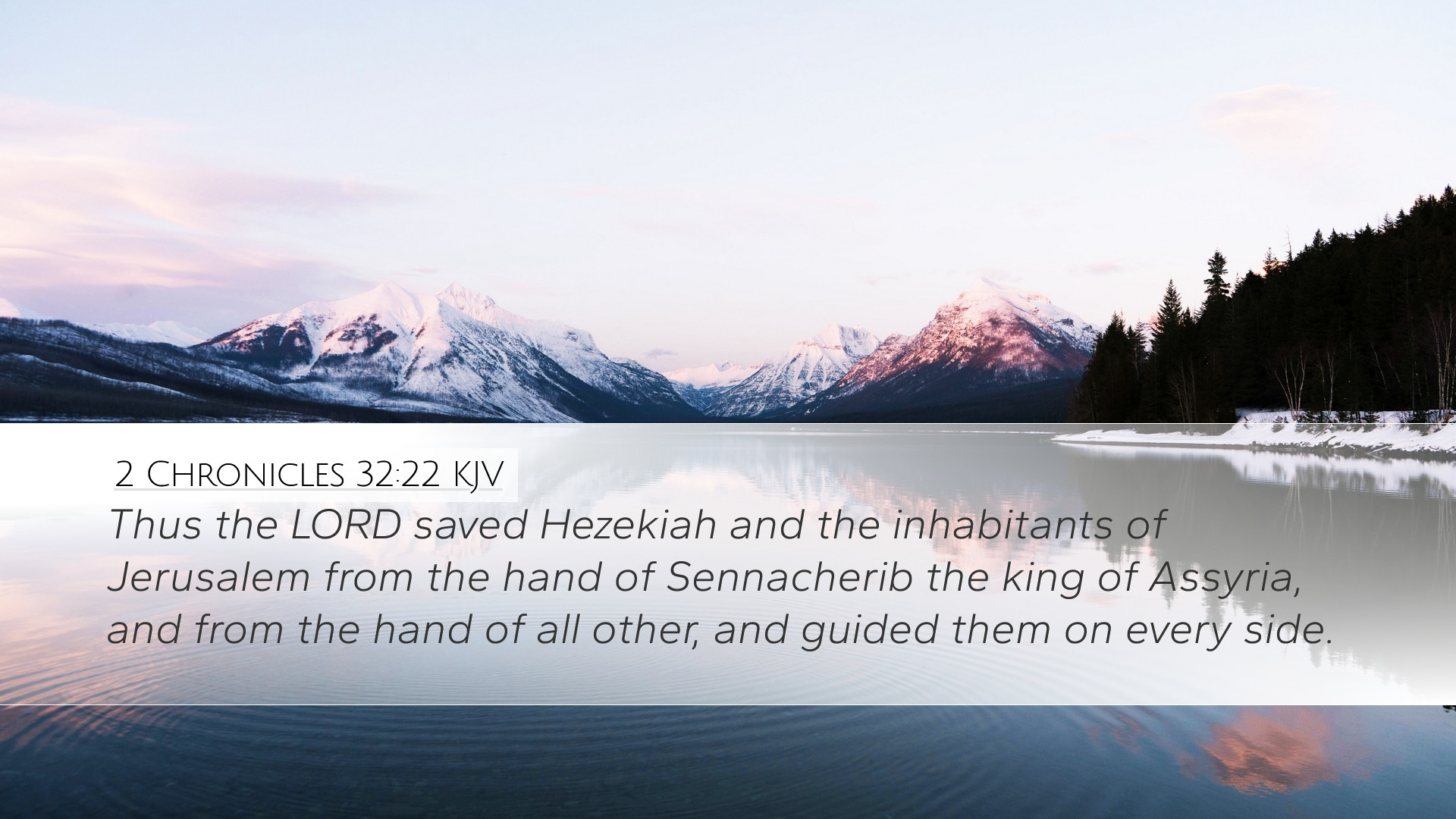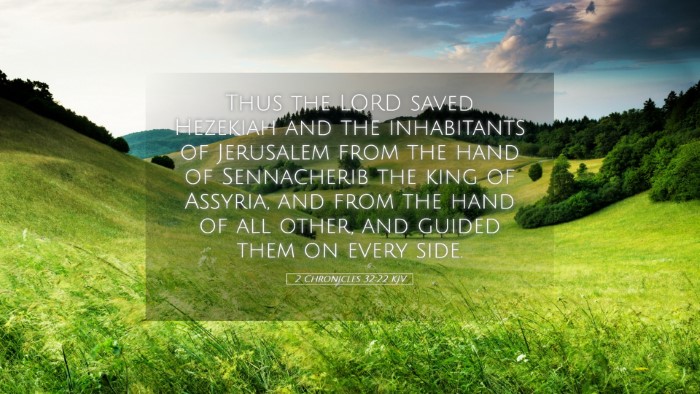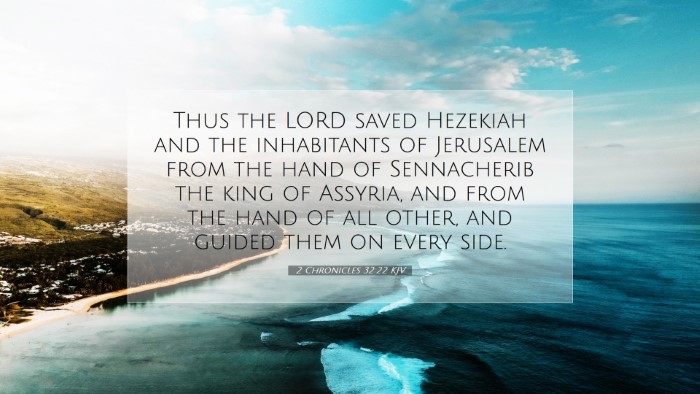Commentary on 2 Chronicles 32:22
This verse states: "Thus the LORD saved Hezekiah and the inhabitants of Jerusalem from the hand of Sennacherib the king of Assyria, and from the hand of all other, and guided them on every side." This passage highlights key themes of divine intervention, protection, and the faithfulness of God toward His people. The context in which this verse occurs is crucial for a deeper understanding of its implications.
Contextual Background
The narrative in 2 Chronicles 32 describes the siege of Jerusalem by Sennacherib, the Assyrian king, around 701 B.C. Hezekiah, the king of Judah, is depicted as a reformer who sought to restore true worship and dependence upon God. The crisis brought about by Sennacherib's threats serves as a backdrop for God's miraculous deliverance.
Historical Insight
Matthew Henry emphasizes the historical significance of this period, noting that it marked a pivotal moment for the southern kingdom of Judah. The Assyrians were known for their ruthless military campaigns and their desire to dominate the region. Hezekiah's response to this threat included not only military preparations but also a deepening reliance upon God through prayer and reform.
Theological Significance
- Divine Deliverance: The phrase "Thus the LORD saved" indicates an active involvement of God in defending His people. It suggests that divine intervention is paramount, demonstrating that human efforts are secondary to God’s sovereign will.
- God as Protector: The assurance of God's protection not only applies to Hezekiah and Jerusalem but extends to all who trust in Him. There is a fundamental recognition of spiritual and physical deliverance.
- Guidance: The promise that God "guided them on every side" underscores the theme of divine guidance. Adam Clarke interprets this as not merely physical protection but also God providing wisdom and direction in times of crisis, thus leading His people to make the right decisions.
Reflections from Commentators
Matthew Henry
Henry notes that Hezekiah's actions during this crisis were characterized by faith and prayer. He emphasizes that the deliverance from Sennacherib was not just a military victory but a testimony to the faithfulness of God, encouraging believers to trust in the sovereignty of the Lord during challenging times. Henry states, "Hezekiah had been in great peril, but God did not abandon him." This highlights the covenant relationship between God and His people, where faith leads to divine protection.
Albert Barnes
Barnes offers a comprehensive analysis of God's intervention. He remarks on the miraculous nature of the deliverance, pointing out that "the hand of Sennacherib was stayed." Barnes refers to God as a "God of armies" whose power is unmatched, reinforcing the central theme of reliance on God's might rather than human strength. He advocates for a recognition of God's hand in historical events, suggesting that believers should view history through the lens of divine action.
Adam Clarke
Clarke discusses the implications of divine guidance in the context of this passage. He emphasizes "the hand of God" as a metaphor for active engagement in the affairs of men. Clarke's insights invite readers to reflect on God’s continued guidance and support in their lives, encouraging prayer and dependence on God in all matters. He asserts, "What can harm those whom God protects?" this rhetorical question underscores the ultimate safety found in God's sovereignty.
Pastoral Application
For pastors and leaders, this verse serves as a powerful reminder of the importance of prayer, faith, and reliance on God's guidance during times of crisis. It encourages the congregation to foster a strong relationship with God, affirming that He is always present in their struggles.
Encouragement for Believers
For students and scholars, this verse offers rich material for theological reflection on God's protection and guidance. The historical context and commentary highlights underscore the timeless nature of God’s promises, inviting deeper exploration of faith in action throughout Scripture.
Conclusion
2 Chronicles 32:22 encapsulates the themes of divine intervention, protection, and guidance. By analyzing the insights from Matthew Henry, Albert Barnes, and Adam Clarke, we see a structured understanding of the significance of this verse and its application for contemporary believers. The faith demonstrated by Hezekiah amidst adversity serves as a model for trusting in God's sovereignty and seeking His guidance in all life's challenges.


